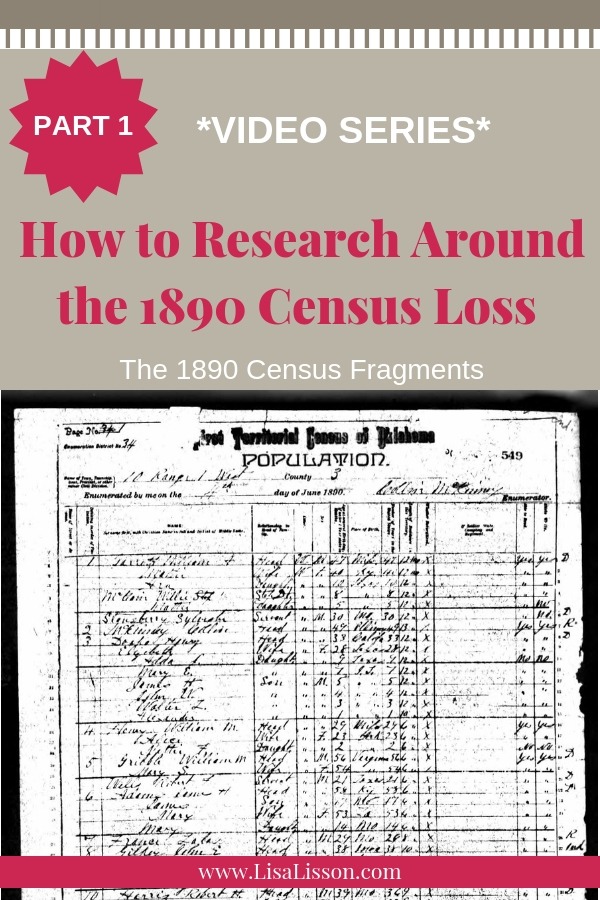
How To Research Around the 1890 Census Record Loss – Part 1: 1890 Census Fragments
***Please note that this post contains affiliate links which means I may earn a commission if you decide to purchase a product/service. This does not cost you extra. Be assured I only recommend products/services that I use and think you would like too. Read my disclosure policy and privacy policy.
The loss of the 1890 U.S. Census is a stumbling block for many genealogy researchers. “Losing” our ancestor in 1890 is the cause of many brick walls, but we do have research options to overcome these brick walls.
Here’s a bit of genealogical trivia first…..
The 1890 census did not burn. It received significant water damage during the fighting of the fire in the facility where it was stored. The census records then sat and sat and sat….. Well, water, paper and time are not a good combination. The 1890 census was ruined.
But back to our research….
The loss of the 1890 population census does not have to stall your genealogy research.
Devon Lee from the Family History Fanatics and I have teamed up once again to bring you an 8-part video series focusing on how to research around the 1890 census loss. We want to take the overwhelm out of researching your ancestors during the 1890 US Census Loss time period. And yes, we will have fun along the way!!
How To Research Around the 1890 Census Record Loss – Part 1: 1890 Census Fragments
First up in our series, we are talking about those 1890 census fragments that did survive.
Want to jump right to the video? Go ahead an scroll to the bottom of the post!
According the the Nation Archives (NARA), fragments of the 6 parts of the census surviving include:
- Parts of the population schedule – Over 6100 individuals in 10 different states can be found
- Schedules of Union Soldiers and their widows
- Schedules for the Oklahoma territories
- Selected Delaware African Americans
- Statistics on Lutheran Congregations
- Statistics on the United States (derived from the 1890 census for reports to the government)
These collections are helpful for researching the social history or context of the time your ancestor lived. It’s not helpful to us genealogy researchers in identifying specific individuals. Be sure to check these collections out when you write a narrative about your ancestor because the statistics may add interesting tidbits.
If you’re one of the lucky ones, your ancestor is listed in the few portions of the 1890 Census record. We’d love to know if you do find your ancestors, so list them in the comments below.
The 1890 Census Fragments
The next video in our series we will talk about using state census records in the absence of the 1890 census.
You might also be interested in:
- A Close Up Look At The 1790 Census
- A Close Up Look At The 1880 Census
- Back to Genealogy Basics: 1900’s Census Records
::::::::::::
Pin for Future Reference!









2 Comments
Elmira Smith
Sarah Eggleston
Susan Emert
I found my great grandfather, William Henry Harrison Alden, on the 1890 Veterans Schedule in Washington, DC. He and his entire family were listed.
Thank you for doing this series. It will be a great help to many researchers!